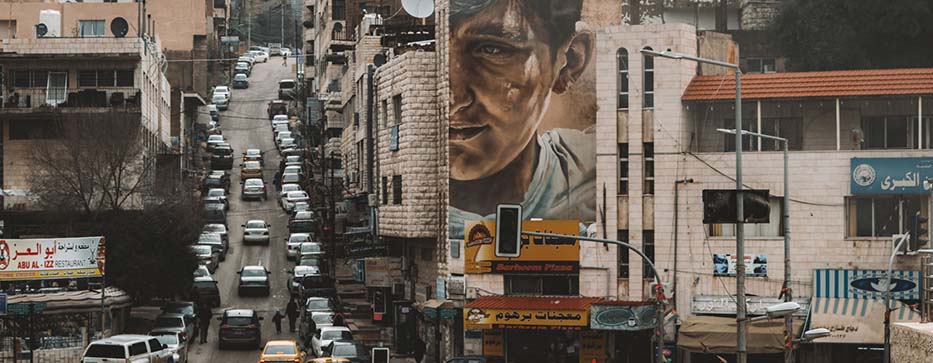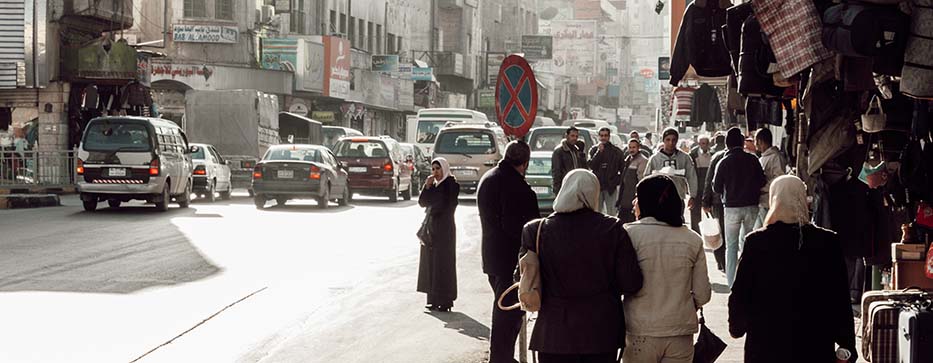When you travel to Jordan, you will experience a major cultural change: its population has certain similarities with that of its Arab neighbors, but also important differences and, above all, it will be very different from that of your country of origin. Therefore, it will be useful to know in advance how is the society of Jordan, something that we explain in detail in these lines: we talk about its demographic, ethnic and economic situation, among other details of interest.
The first thing that can be said about Jordanian society It is that it is a hospitable and welcoming people, largely thanks to its Bedouin roots: the extreme conditions of the desert have been forging a feeling of empathy towards others and humility towards oneself that have remained as hallmarks of the Jordanian population, seasoned with a certain sense of humor that gives even more uniqueness to its character.
You will understand from the moment you make contact with a Jordanian, not only because of his greeting Ahlan wa sahlan!
(translated as “welcome as family!”), but also for their exquisite manners, often following a strict protocol that includes offering several cups of tea or coffee.

The society of Jordan It is increasingly urban: although many have the image in mind of the Bedouin nomads of the desert, the truth is that the rate of population growth in large cities is unstoppable, with a percentage of inhabitants that is around 70% of the country’s total.
Although they are a minority, there is still a part of the population that lives in rural areas or even maintains a nomadic way of life. An estimated 40,000 people continue to live on the scarce resources provided by the desert and its oases, especially their transhumant livestock. However, their ways of life have also been adapted to the new times, with semi-nomadic habits and the help of modern means, such as 4×4.
In addition, Jordanian society It is characterized by sustained population growth over time: the fertility rate of women is approximately 2.7 children, although it is true that this rate has been declining year after year after reaching its historical maximum in the 60s, when it was 8 children per woman.
To assess the level of progress of Jordanian society, we can take the United Nations Human Development Index, which weights a series of economic, health and educational values, mainly. The figure as of 2021 was 0.720, which places the country in 102nd place in the world, with the High HDI rating. That is a value very similar to that of neighbors such as Egypt or Lebanon, and similar to that of other countries in the world such as Ecuador or Paraguay, but well below Kuwait, Israel or the United Arab Emirates. The official unemployment rate is usually quite high, usually between 15% and 25% of the active population.
Jordanian society It is very marked by the Islamic religion, although, to a lesser extent than other countries in the Middle East, as we will see below. In addition, this influence is diluted among the members of the new generations.
In any case, the State of Jordan is Islamic: the officiality of this religion is recognized in chapter 2 of its Constitution. However, there is freedom of worship, although sometimes that freedom of choice can be compromised by tradition and social pressure. It is estimated that about 97% of Jordanians profess the Muslim religion, while 2% are Christians and a small minority would be Buddhists and other faiths.
Therefore, the rhythm of Jordanian society is marked by the uses and traditions of Islam, such as obligatory fasting in the month of Ramadan or the generalization of Friday as the most common day of rest.
Another fundamental aspect of Jordanian society, largely linked to Islam and traditions, is the family, which is considered the basic pillar on which to sustain community life. In it, the elderly occupy a primordial place, object of the utmost respect. And this would explain, in part, the good regard of
the country’s Royal Family
, conceived as its equivalent in the highest sphere. Marriage is still considered the fundamental aspiration and an almost obligatory step for every Jordanian.

Within the family, women continue to have a fundamental role, responsible for organizing daily life and raising children, among other tasks, leaving men as the most visible face of the family before the community. However, as you can see at first glance, the habits associated with Islam are carried out here in a more relaxed way, such as the use of the veil, which is not as widespread as in other countries of the Middle East.
In addition, the country has taken important steps in the equalization of rights between men and women, and in the full integration of women into Jordanian society.. The different reforms of the civil code (personal status) enshrine these advances, such as its power to request divorce, although this decision implies the return of the dowry to the man and a certain social stigmatization. Polygamy is not illegal, but it is a very residual practice.
This was the first Arab country to allow women to vote in elections and gender quotas have been approved in some sectors of Jordanian society., as in Parliament. However, many steps remain to be taken to improve the status of women, especially professionally and economically, as they continue to experience unemployment rates much higher than those of men.
As we said, the society of Jordan It is increasingly integrated into the phenomenon of globalization. And that can be seen especially in the big cities and in the new generations. For example, by the massive use of smartphones, by the taste for Western-style clothing or by the habit of frequenting local international chains in large shopping centers.
Another fundamental aspect of Jordanian society It is the large presence of refugees. The hospitality of its people and the stability of the country in the context of the Middle East have attracted Arab neighbours for decades, whose countries have not exactly stood out for stability.
It is difficult to quantify the exact number, but they are certainly counted in the hundreds of thousands or even over a million, according to UNHCR data, and that has caused the emergence of some unrest in a part of the population, which laments the degradation in the quality of public services and assistance. The main sources of refugees in Jordan are: